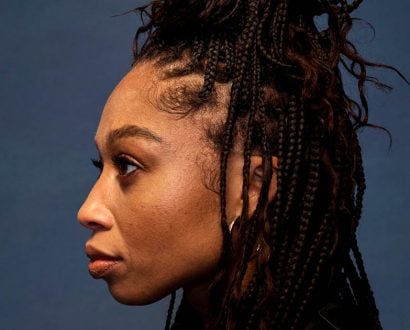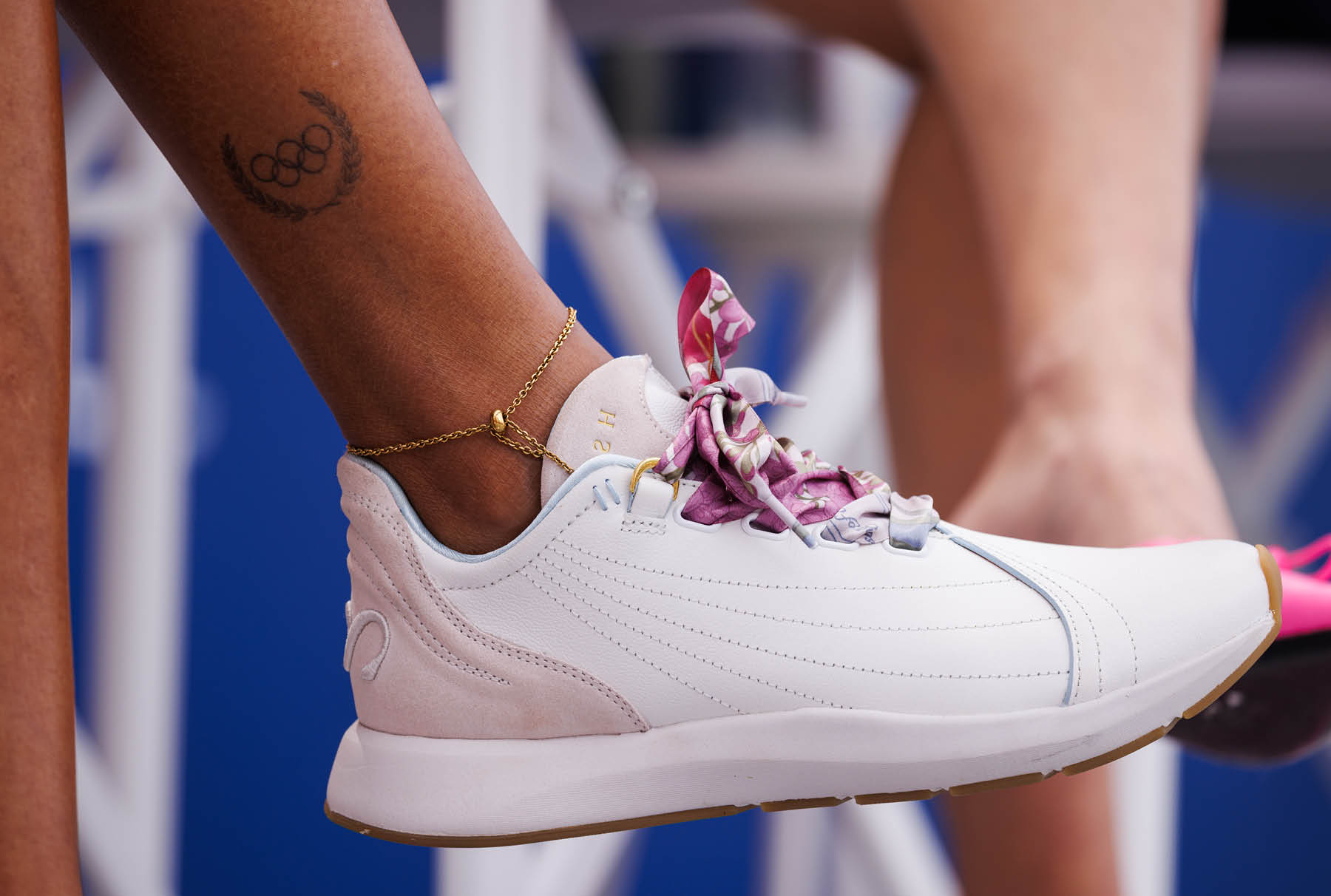How Olympic star Allyson Felix found success in the business world

Allyson Felix admits that being merely a spectator at the Paris 2024 Olympics will conjure a mix of emotions.
Having retired from athletics in 2022 as the most successful track and field athlete in United States history, the seven-time Olympic gold medalist now spends her time winning different sorts of accolades for Saysh, the successful running shoe business she founded three years ago.
Its launch followed a very public dispute with her long-term sponsor Nike in 2019 after it slashed her contract by 70 percent when pregnancy prevented her from competing for a year. The sportswear behemoth was eventually shamed into backing down but lost its star ambassador and saw its reputation take a beating.
Saysh, meanwhile, has stayed in the fast lane, becoming one of Oprah Winfrey’s ‘Favorite Things’, its CEO twice ringing the closing bell at the New York Stock Exchange and being accepted into retail giant REI’s stores.

Saysh is disrupting the shoe industry
In September last year, First Lady Jill Biden donned a pair of Saysh runners for her Women’s Health cover shoot.
While Felix won’t be hitting the Stade de France track, she has instead turned her attention to supporting the current generation of athletes for whom she’s become a role model and mentor.
"Watching the Olympics from the sidelines after two decades of competing will definitely be bittersweet," the 38-year-old sprint legend tells The CEO Magazine.
"I’ll be filled with nostalgia for the thrill of competition, but also excitement for the new chapter ahead and getting to share the experience with my family."
In her five Olympics, she won 11 medals: seven gold, three silver and one bronze. Her first was a silver in the 200 meters at the 2004 Athens Games aged just 18 and in only her second major race meeting.
Four years later in Beijing, she won gold in the 4 x 400 meter relay and her second 200 meters silver. Three more golds followed in London in 2012 for the two relays and – finally – the 200 meters before she successfully defended both relay titles at the 2016 Rio de Janeiro Olympics.
Her crowning glory came in Tokyo in 2021 when bronze in the 400 meters saw her overtake another track hero, Carl Lewis, and become the American track and field star with the most Olympic medals.
Personal triumphs
So, is there a particular cherished moment that stands out from those five Games?
"Oh, choosing just one from the Olympics would be so hard as my memories are countless," she says. "From winning my first gold to overcoming such huge challenges in subsequent Games. Each medal represents not just personal triumphs but also the collective efforts of my incredible team and supporters."
"It was fueled by my passion to create positive change in the industry … I couldn’t be prouder that Saysh is in the world."
For good measure, she’s also the most decorated athlete – male or female – in the World Athletics Championship, where she won an extraordinary 14 gold medals between 2005 and 2022. And during President Barack Obama’s time in the White House, she served as his fitness and nutrition advisor.
She admits the decision to finally hang up her Saysh runners was agonizing.
"It was really tough, but I knew it was the right time," she says. "I felt at peace with my achievements and ready to explore new avenues beyond the track. Family is my priority, and they guided my decision."
Her family expanded to the size of a relay team in April with the birth of her son, Trey, a younger brother for six-year-old Camryn.
And just three months after giving birth, Felix is in Paris using her vast experience to mentor and support five female American athletes in sports ranging from water polo and wheelchair basketball to boxing, wrestling and Paralympic sprinting.
"Watching the Olympics from the sidelines after two decades of competing will definitely be bittersweet."
But even with a baby and thriving business to oversee, the experience is unlikely to be as stressful as the run-up to Tokyo. Back then she was also a new mother and enduring months of intensive training while also trying to secure equity for her new venture.
"Launching Saysh amid all that training and motherhood was certainly challenging and required meticulous planning and a strong support network," Felix reflects.
"But it was fueled by my passion to create positive change in the industry. So, no, it wasn’t easy, but we did it, and I couldn’t be prouder that Saysh is in the world."
Revolutionary sneakers
In the end, she and her Co-Founder brother, Wes, amassed US$8 million in Series A funding, some of it from Gap Inc.
Soon the Saysh One and Felix Runner were born, and they weren’t just fancy new shoes with a famous ambassador – they really were driving positive change by becoming one of the first sneakers specifically engineered for female feet.
Incredibly, most women’s sports shoes are still designed based on the contours of men’s feet. The mentality is what Felix calls "shrink it and pink it" where no allowance is made for a woman’s narrower heel and wider forefoot.
Allyson Felix proactively promoting Saysh shoes in Cannes, France, 2023
"Women’s bodies are built differently, so why shouldn’t our shoes be built differently as well? It’s about shifting the conversation and empowering women through footwear that actually meets their needs," she says.
Even so, some of the early investors they approached were cynical. How could a well-meaning startup possibly compete with the likes of her erstwhile sponsor and its US$150 billion market cap?
But the same laser focus and grit that had made her a champion weren’t about to desert her.
"Transitioning from athlete to entrepreneur has been a journey of growth. The challenges, particularly as a woman of color, have reinforced the importance of perseverance and resilience in pursuing my goals," Felix says.
"Women and people of color face significant hurdles in the entrepreneurial world. For instance, Black women receive less than one percent of venture capital funding, and only 2.3 percent of venture capital funds go to female-founded startups.
"That highlights the systemic barriers that exist, but it also fuels my determination to break down those barriers and create opportunities for others. The journey has taught me that resilience is key and that our collective efforts can drive meaningful change in the industry."
Fighting for fair treatment
That meaningful change began in 2018 while Felix was pregnant with Camryn and renegotiating her Nike sponsorship deal, which had just expired.
Despite her glittering career, the company offered less than a third of her previous deal on the basis she wouldn’t be competing for a year. Felix asked for reassurance that she wouldn’t be further penalized if she didn’t immediately return to top form in the months after giving birth, but Nike point-blank refused.
"When I heard about the decision, it was very disappointing and disheartening, but it fueled my determination to advocate for fair treatment, not just for myself but for all female athletes," she says.
"Taking on Nike publicly was daunting, but I knew it was necessary to stand up for what was right."
"Taking on Nike publicly was daunting, but I knew it was necessary to stand up for what was right. The emotional toll was significant, but the support I received from my family, friends and fellow athletes kept me resilient."
Oblivious to the irony, at the same time Nike was denying her basic maternity protections, it was also pressuring her to take part in an advertising campaign for female empowerment, a move she says made her "stomach drop".
The hypocrisy was particularly hard to take as one of the reasons she’d signed with Nike in 2010 was because the company told her it believed that promoting adolescent girls was key to improving societies and opening up opportunities for women.
But not all women, it seemed.
Reducing racial discrepancies in maternity
The stand-off took a sudden back seat when, at 32-weeks pregnant, Felix developed severe preeclampsia. With her baby’s heart rate dangerously low, she had an emergency cesarean section and her daughter was whisked away to intensive care.
Camryn was unable to breathe unaided and spent weeks fighting for her life as her mom watched helplessly.
The trauma exposed Felix to the scandalous racial discrepancy in maternity survival rates. A Black woman with a college degree was 5.2 times more likely to die during pregnancy or childbirth than an equivalent white woman.
Allyson Felix with her daughter, Camryn, at the 2020 United States Olympic Track and Field team trial
Later that year, Felix felt compelled to testify before Congress on the need to improve outcomes for Black Americans.
"We need to provide women of color with more support during their pregnancies," she told the House Ways and Means Committee.
"Research shows that racial bias in our maternal healthcare system includes things like providers spending less time with Black mothers, underestimating the pain of their Black patients, ignoring symptoms and dismissing complaints."
Since her intervention, the figures for Black women have improved, but their risk of death is still three times that of white women.
"Addressing the disparity is a cause close to my heart," she says. "I hope to develop programs that will improve maternal healthcare and create a more equitable environment for all women."
With Nike dogmatically standing its ground, Felix walked away, penning an article for The New York Times on the experience and then beginning the conversations that would lay the foundations for Saysh.
"We need to provide women of color with more support during their pregnancies."
Nike, meanwhile, was forced into a humiliating reverse swoosh, finally agreeing to "add language to new contracts for female athletes that will protect their pay during pregnancy".
"The policy change was a step forward," Felix says. "But more sponsors need to actively support female athletes in areas like maternal care and mental health and create policies that accommodate the unique challenges they face throughout their careers and beyond."
Tokyo record breaker
As it turned out, Nike needn’t have fretted about Felix’s post-pregnancy form. Less than a year after her C-section, she broke Usain Bolt’s record for the most career gold medals won at the World Athletics Championships.
And she won her 10th Olympic medal in Tokyo, proudly wearing Saysh shoes.
The lesson of perseverance and self-belief is one she hopes the five Olympic competitors she’s helping in Paris will take to heart as they pursue their dreams.
"My advice to the next generation of female athletes is to value your worth, advocate for yourself and surround yourself with a supportive team," Felix says. "Embrace challenges as opportunities for growth and use your platform to inspire change in sports and beyond."
Or, as a certain corporate sportswear brand might say, ‘Just do it.’
It’s something Felix has done all her life and she has no intention of stopping for breath anytime soon.